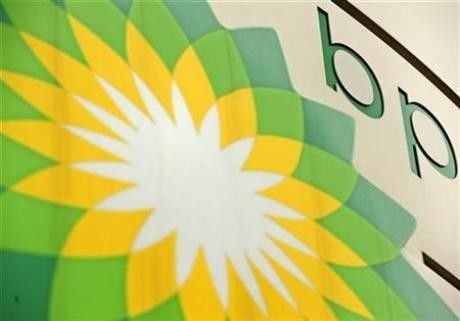Is the Worst Over For BP?

BP Plc (BP), which is tormented by the Gulf of Mexico oil spill, has witnessed a positive development last week when Presidential Commission did not find BP solely responsible for the oil spill and blamed service contractors and government regulators.
Several market analysts say this could be an important step in the recovery of the oil company.
If this conclusion holds, we think the worst for BP may be over and the upside potential in the stock could be significantly greater than the downside risk, Oppenheimer analyst Fadel Gheit wrote in a note to clients.
Although BP still faces large potential liabilities, the total costs might be less than the $39.9 billion, it has reserved in connection with the accident, which is considered as the largest accidental marine oil spill in the history of the petroleum industry.
The accident, the impact of which still continues even after the well was capped, stemmed from a sea-floor oil gusher resulting from the April 20, 2010 Deepwater Horizon explosion. The explosion killed 11 men working on the platform and injured 17 others.
BP spent $14 billion and paid $4 billion in claims related to the accident that also resulted in the abrupt dismissal of its CEO and the head of its worldwide upstream operations. The oil spill disaster also drove the company to the brink with uncertain future and significant potential liabilities.
Meanwhile, BP's share of the costs may be less than the $39.9 billion written off last year, as it might be able to recover some of the costs from its partners and contractors, if the company's mismanagement didn't constitute recklessness, negligence or willful misconduct.
Reimbursement by its partners and contractors in the well and tax deduction could reduce net payment by BP. The claims administrator indicated that total payments may be less than half the $20 billion in the escrow account, while BP will use the remaining $10 billion to settle claims by Federal, state and local governments.
Shareholder Confidence
Meanwhile, BP is also expected to announce next month a new dividend policy that is competitive with its peers', which should improve shareholders' confidence.
BP had suspended dividend payments for the first three quarters of 2010 and launched asset sales to raise up to $30 billion to meet its liabilities. However, the extent to which those asset sales will crimp production and its growth potential remain to be seen.
Takeover Scenario
The Gulf of Mexico oil spill has created a fertile environment for speculation about a possible takeover of BP by its European arch rival Shell.
Although, the analysts believe that a combination of the two companies would create significant shareholder value, the political landscape may not be as favorable for mega-mergers as it was a decade ago.
In mega mergers, job cuts are the primary source of generating cost synergies. For instance, Exxon-Mobil merger saw the elimination of 40,000 positions, 30,000 lost their jobs in the Amoco-Arco-BP merger and 30,000 jobs were axed in the Chevron-Texaco merger.
Shell and BP combined employ about 181,000 people, or 100,000 people more than ExxonMobil.
A merger between Shell and BP could result in the elimination of more than 60,000 positions, which might make it difficult for such a deal to win government approval given the current high unemployment, analyst Gheit said.
Another scenario is ExxonMobil acquiring BP. Apart from the issue of massive layoffs, the deal could face scrutiny and draw criticism from the UK government and media that BP was not fairly treated given the perception of the heavy-handed way the US government has dealt with BP.
In either case, the takeover premium could be in the 30-40 percent range, Gheit said.
Share Performance
BP shares gained 4.3 percent this year and are now trading at 72 percent above their 12-month low and 26 percent below their high.
Analyst Gheit has raised his price target on BP stock to $55 from $45.
We expect BP stock performance to continue to reflect the outlook for crude oil prices and oil spill developments, Gheit said.
Shares of BP were down 90 cents, or 1.95 percent, in the pre-market trading Monday on the NYSE. On Friday, they closed trading at $46.08.
© Copyright IBTimes 2024. All rights reserved.





















